September 2013: The Worst Video Media Disaster
Clothing designer Kenneth Cole has a nasty little habit of newsjacking world events for his own benefit.
You may remember that he tried to get publicity for his new clothing line in 2011 by using the Egyptian Revolution that killed more than 800 people as a marketing hook:
At the time, Cole issued an apology:
“I apologize to everyone who was offended by my insensitive tweet about the situation in Egypt. I’ve dedicated my life to raising awareness about serious social issues, and in hindsight my attempt at humor regarding a nation liberating themselves against oppression was poorly timed and absolutely inappropriate.”
It turns out he didn’t mean his apology. Earlier this month, Cole repeated the stunt as the threat of war in Syria loomed:
I can’t even imagine how families with children serving in the armed forces must have reacted to Cole’s callous tweet. When faced with the inevitable social media backlash this time, however, Cole turned defiant.
Let’s be clear here: His insistence that he was trying to “provoke a dialogue about important issues” is either knowingly false or downright delusional. His tweets had nothing to do with substance. It appears that they were both intended to promote his products.
Even the phoned-in quality of the video reinforces his flip attitude. This controversy is worth addressing, but barely, the overly casual aesthetic seems to say.
But at least he kind of apologized, right?
Nope. According to an upcoming interview in the October issue of Details Magazine (as reported by The Huffington Post), Cole said:
“If you look at lists of the biggest Twitter gaffes ever, we’re always one through five. But our stock went up that day, our e-commerce business was better, the business at every one of our stores improved, and I picked up 3,000 new followers on Twitter. So on what criteria is this a gaffe?”
“Within hours, I tweeted an explanation, which had to be vetted by lawyers,” he added. “I’m not even sure I used the words I’m sorry — because I wasn’t sorry.”
Got that? Cole apologized after the 2011 incident, but he didn’t mean it. And now he’s claiming he was just trying to “provoke a conversation” when it seems clear that profit was his motive.
All of this makes Cole the most insidious kind of marketer—one that uses tragedy and war to sell products. And based on his shifting explanations, it appears to make him a dishonest one, too.
Avoid committing your own media disaster. Read The Media Training Bible: 101 Things You Absolutely, Positively Need to Know Before Your Next Interview, available in paperback, for the Kindle, and the iPad.
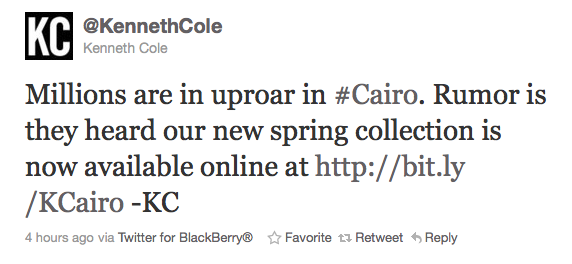
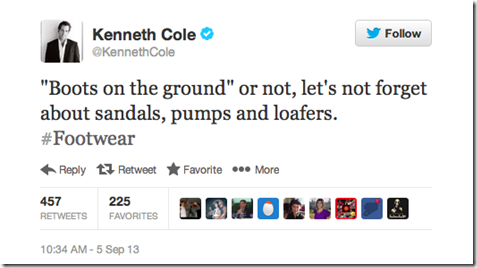
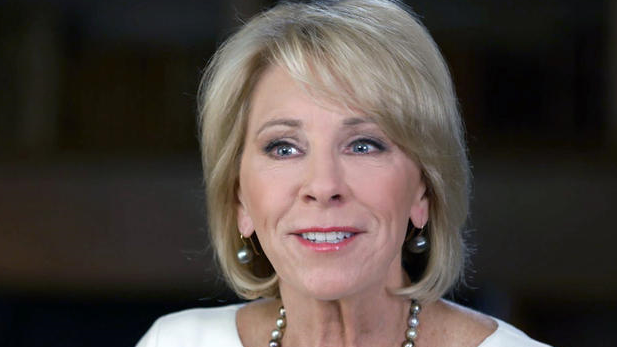
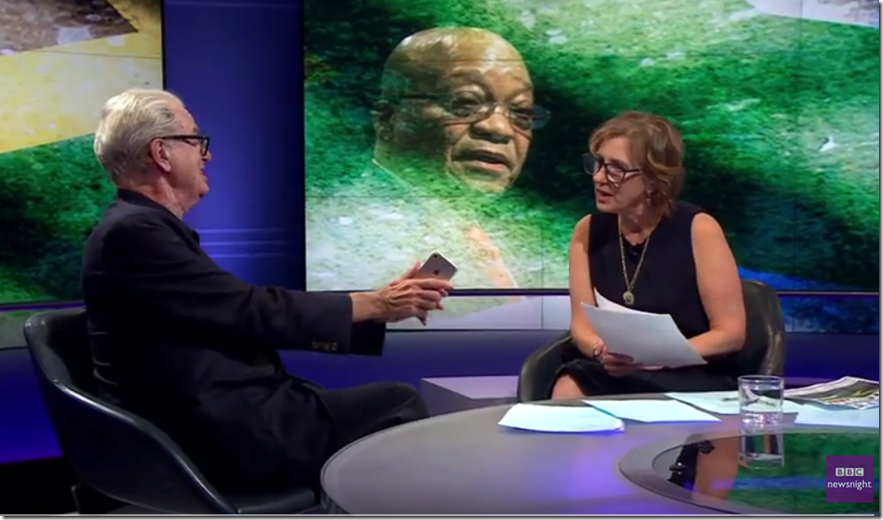
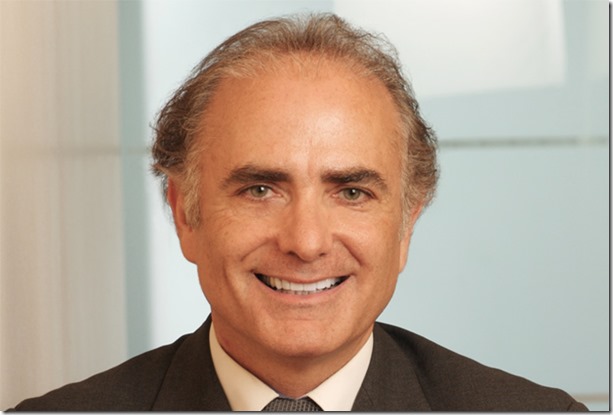
Cole’s newsjacking is nothing new as a tactic for gaining news attention. I used Rick Perry’s many gaffes to publicize a political book and my client when he was trying to earn the Republican nomination. And you’re using Cole’s gaffe to promote your book.
I’m not saying what you’re doing is wrong, or what I did was wrong, or what Cole did is wrong. Is he exploiting an opportunity in the media to gain followers, earn sales and keep his company in the public’s eye, yes!
Should we be mindful of how we newsjack? Is their an ethical standard we should be following? I believe so. But in a culture where relativism is the guiding philsophical modus operenti, we will surely see more of it.
At least we’ll have enough bone headed fodder to keep our blogs fresh with content.
My mind of late has been on ethics, since I’m taking an ethics class as part of a master’s program I’m in. I think there are some ethical concerns here, in that he’s trading on the pain of others in a baldfaced attempt to grow his stock and his business. It’s a case of the end justifying the means without considering the impact those means have on consumers.
I think, Rodger, there’s a huge difference between trading on a somber event for corporate gain and simply capitalizing upon a teachable moment. I’d argue that using Rick Perry’s gaffes to promote your client is not newsjacking; it’s using the gaffe to draw a distinction between your candidate and Rick Perry when both are ostensibly seeking to achieve the same goal. However, capitalizing upon even that has nothing to do with your business or industry–and an event in which people are or might be suffering–is the issue here. Kenneth Cole is patently ignoring the gravity of the situation he’s capitalizing upon simply so that he can sell more shoes. It reduces the significance of the event to a sales pitch. He’s also ignoring the fact that most of those following the situation in question are not likely doing so with an eye for making a shoe-buying decision. As PR professionals, I believe we have a duty to help guide our clients not only in making decisions that will grow their business but also will keep them squarely on the side of ethics.
Typo in my above comment. Should have read, “However, capitalizing upon an event that has nothing to do…”
“His insistence that he was trying to “provoke a dialogue about important issues” is either knowingly false or downright delusional.” LOL. Absolutely. Goodness, isn’t he full of himself.